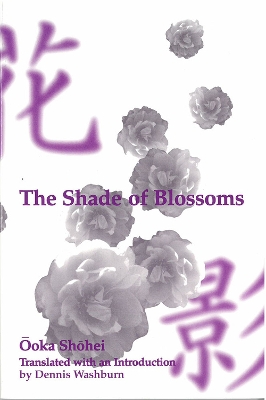Michigan Monograph Series in Japanese Studies
1 total work
Ōoka Shōhei (1909–88) was a distinguished member of the Japanese literary establishment for more than four decades following the end of the Pacific War. While the war was the defining experience for Ōoka, his work exhibits enormous range and depth. The Shade of Blossoms, for which he was honored in 1961 with both the Mainichi and the Shincho literary prizes, marks an especially important stage in his development as an artist. In his postscript Ōoka describes this story as a novel of manners, and certainly the setting of the novel, the demimonde of the Ginza bar scene in the 1950s, and its subject, the aging bar hostess Yōko, seem far removed from the universe of battle. Nonetheless, The Shade of Blossoms not only shares key elements of style but also extends in important ways the moral concerns of his earlier works.
The Shade of Blossoms provides a disturbing view of lives at the margins of Japanese society. Ōoka’s is a powerfully ethical literature that describes the inner search for meaning and identity in a world where received values have been disrupted by war or by social upheavals. His moral imagination is uncompromising and disturbing, and his emotional intelligence is matched by few postwar writers.
